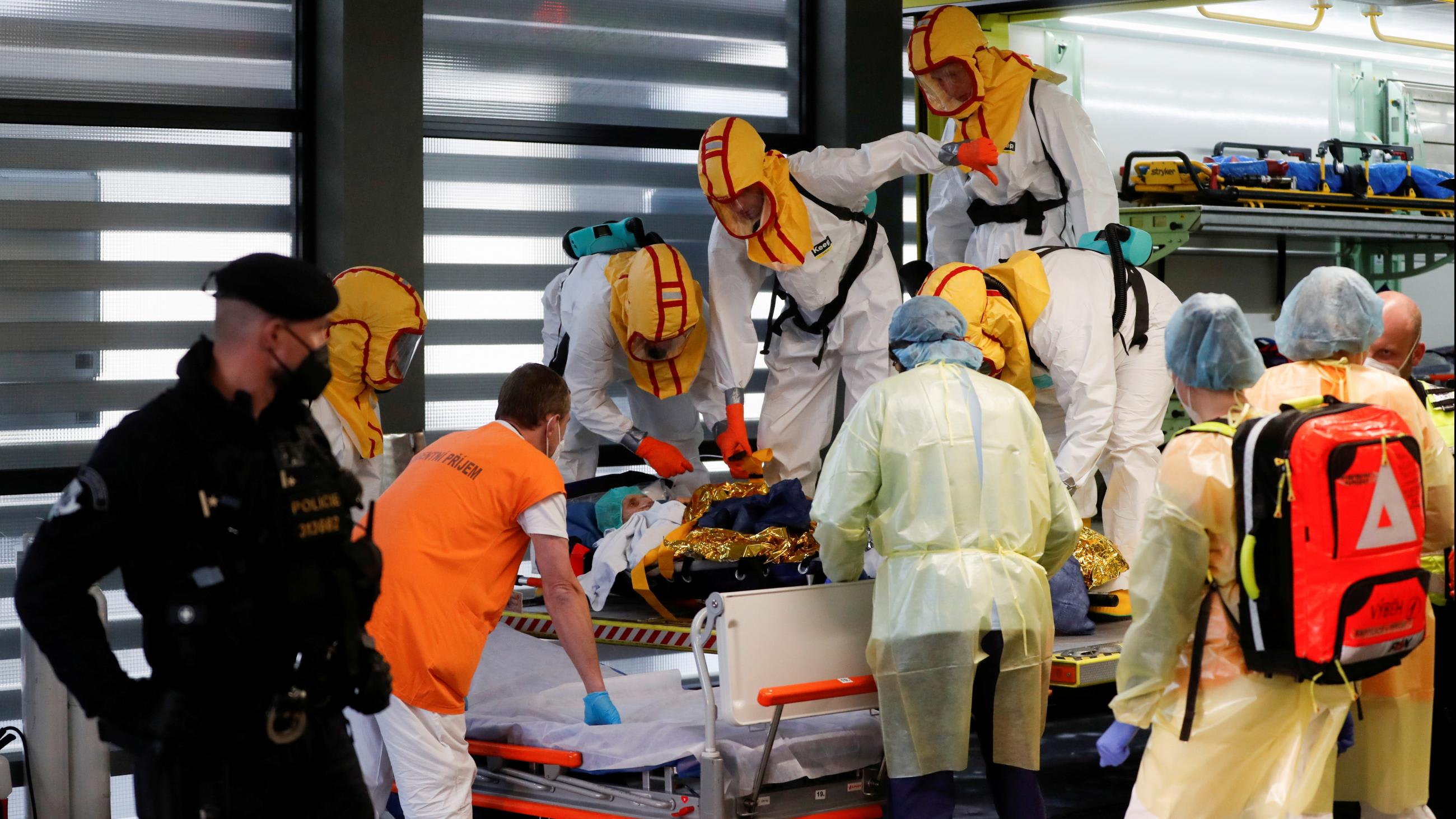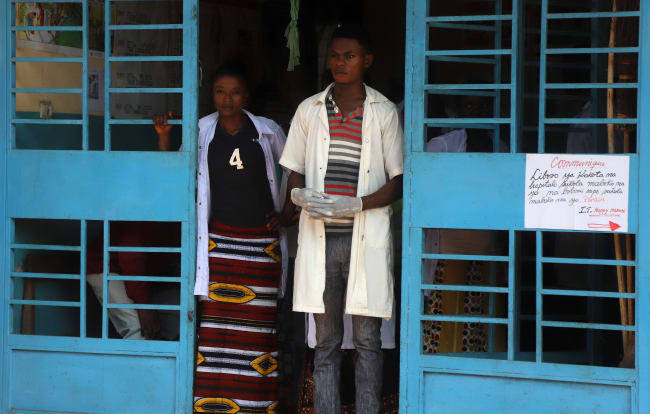On November 29, a special session of the World Health Assembly (WHA) convenes to address whether the World Health Organization (WHO) should develop a convention, agreement, or other international instrument on pandemic preparedness and response. The session emerged from a proposal in 2020 for a pandemic treaty by the president of the Council of the European Union that WHO Director-General Tedros Adhanom Ghebreyesus, several states, and expert reports on the COVID-19 pandemic have supported. The WHA will consider different types of instruments, but the lion's share of attention prior to the session has focused on a treaty.
Proposing a solution before probing the problems puts the cart before the horse
The argument for a pandemic treaty holds that it constitutes the best strategy for generating political commitment from countries to address the global health damage caused by COVID-19 and prepare for future pandemics. The case against a treaty questions the health, political, and legal components of this strategy and identifies potentially more effective ways to reconstitute global health governance after the COVID-19 disaster.
The Health Diagnosis
The pandemic treaty idea gathered support during a catastrophe that exposed many health problems. Proposing a solution before probing the problems puts the cart before the horse. But new thinking cannot wait until the pandemic ends. The treaty proposal provides a lens for scoping the COVID-scarred landscape to identify issues that need attention. The real concern is that the health "cart" is being loaded with so many problems that the treaty "horse" bears an unrealistic burden.
Advocates for a treaty have variously argued that it should address—among other things—surveillance, outbreak notification, the sharing of pathogen samples and genetic sequence information, zoonoses, pandemic prevention, trade and travel measures, equitable access to health countermeasures, health capacities in low-income countries, universal health coverage, social determinants of health, intellectual property rights, misinformation and disinformation, financing for pandemic preparedness and response, human rights, and strengthening the WHO.
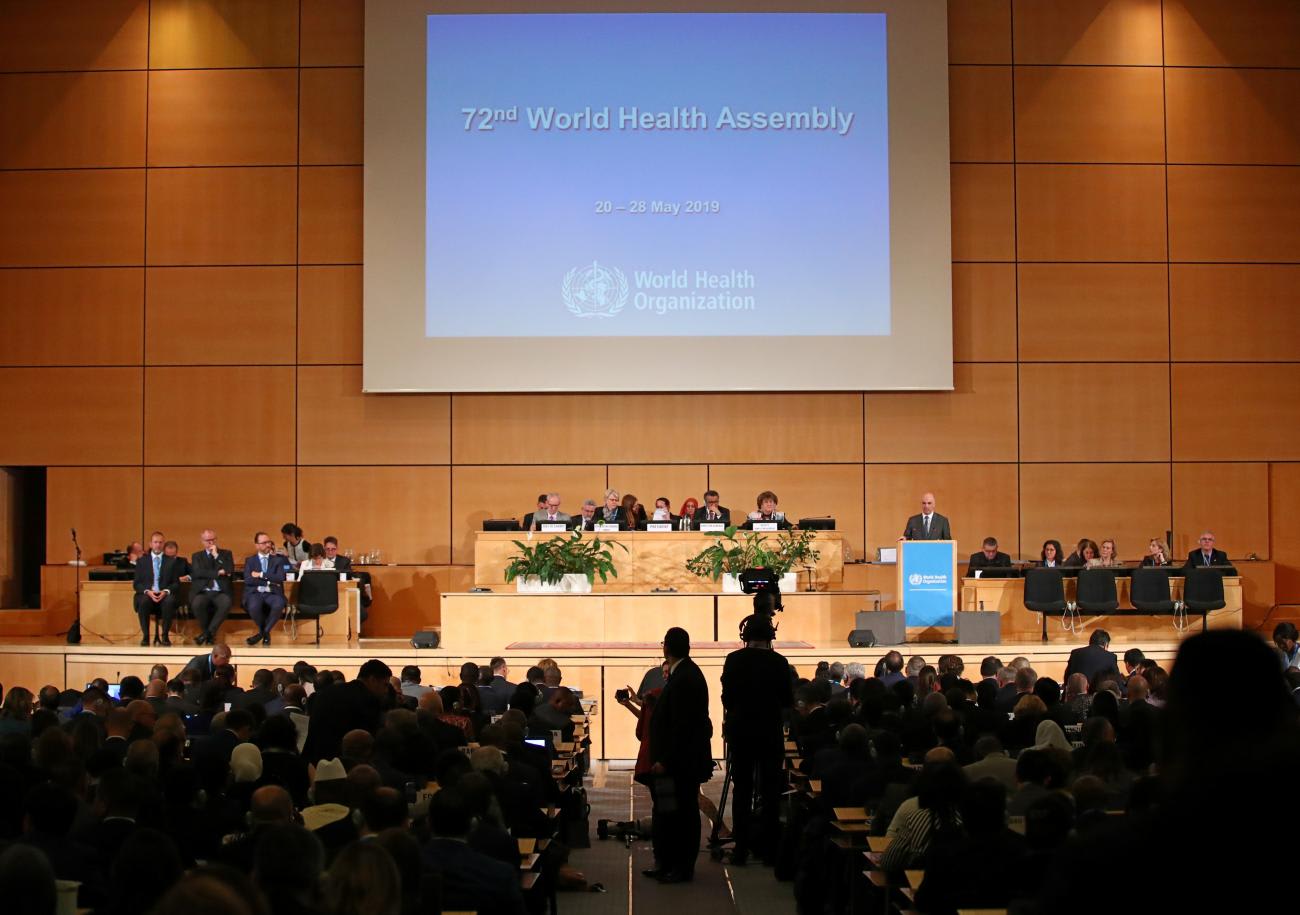
None of these problems can be dismissed as global health frippery. COVID-19 has been so devastating for global health governance that—to borrow from Winston Churchill—we had to watch the "rubble bounce." However, this expansive health diagnosis lacks focus, clarity, and coherence on what issues countries should prioritize in a treaty and why. Loading so much into the health "cart" risks allowing politics more room to determine priorities at the expense of science and epidemiology.
The Political Prognosis
Many who favor a treaty believe it offers the best way to increase political commitment from states to reform global health governance. But COVID-19 demonstrates that this proposition has no clothes. Government responses to COVID-19 have purportedly violated or manipulated many treaties, including the WHO Constitution, International Health Regulations (IHR), and human rights agreements. Claims that noncompliance with the IHR—the treaty most relevant to disease outbreaks—requires a pandemic treaty do not explain why a new treaty will generate the commitment that the IHR apparently did not. Treaties on biodiversity and climate change have also produced such poor commitments that health is now endangered on a planetary scale.
Treaty making on infectious diseases last occurred in 2005 when states radically revised the IHR after the Severe Acute Respiratory Syndrome crisis. The transformation of the IHR did not create the commitment that governments exhibited at that time to addressing pathogenic threats. That commitment emerged because countries embraced globalization, supported collective action on transnational threats, and interacted in a world where the hegemonic United States was emphasizing global health, democracy was spreading, and geopolitics were nonexistent. Those political conditions made possible the unprecedented changes to the IHR, as well as other historic developments in global health in the first decade of this century.
Government responses to COVID-19 have purportedly violated or manipulated many treaties
Claims that a pandemic treaty will increase political commitment typically come with no analysis of transformations in national and international politics that happened in the century's second decade. Internationally, the balance of power had returned, and it battered cooperation on COVID-19. And the great powers are still not tempering geopolitics for the sake of global health. Ideological competition between democracy and authoritarianism had also reemerged and then surged during COVID-19. Many democratic states performed badly, deepening pre-pandemic concerns that democracies are in disarray and impotent against authoritarianism's spread. On the rise globally before COVID-19, nationalism and populism flared during the pandemic, damaged domestic and international responses, and have not dissipated.
This transformed political terrain does not mean a pandemic treaty is impossible. However, domestic and international politics affect treaty making. Proponents have not explained how a pandemic treaty will increase the political commitment of states to global health governance in a world riven by geopolitics, ideological competition, nationalism, and populism.
The Legal Prescription
The pandemic treaty proposal raises questions about what form the treaty should take, how it might affect the IHR, and whether it should empower independent outbreak investigations, contain strong enforcement mechanisms, and require equity obligations involving the transfer of financial and technological resources to low-income countries. Probing these questions highlights that the treaty proposal suffers serious problems.
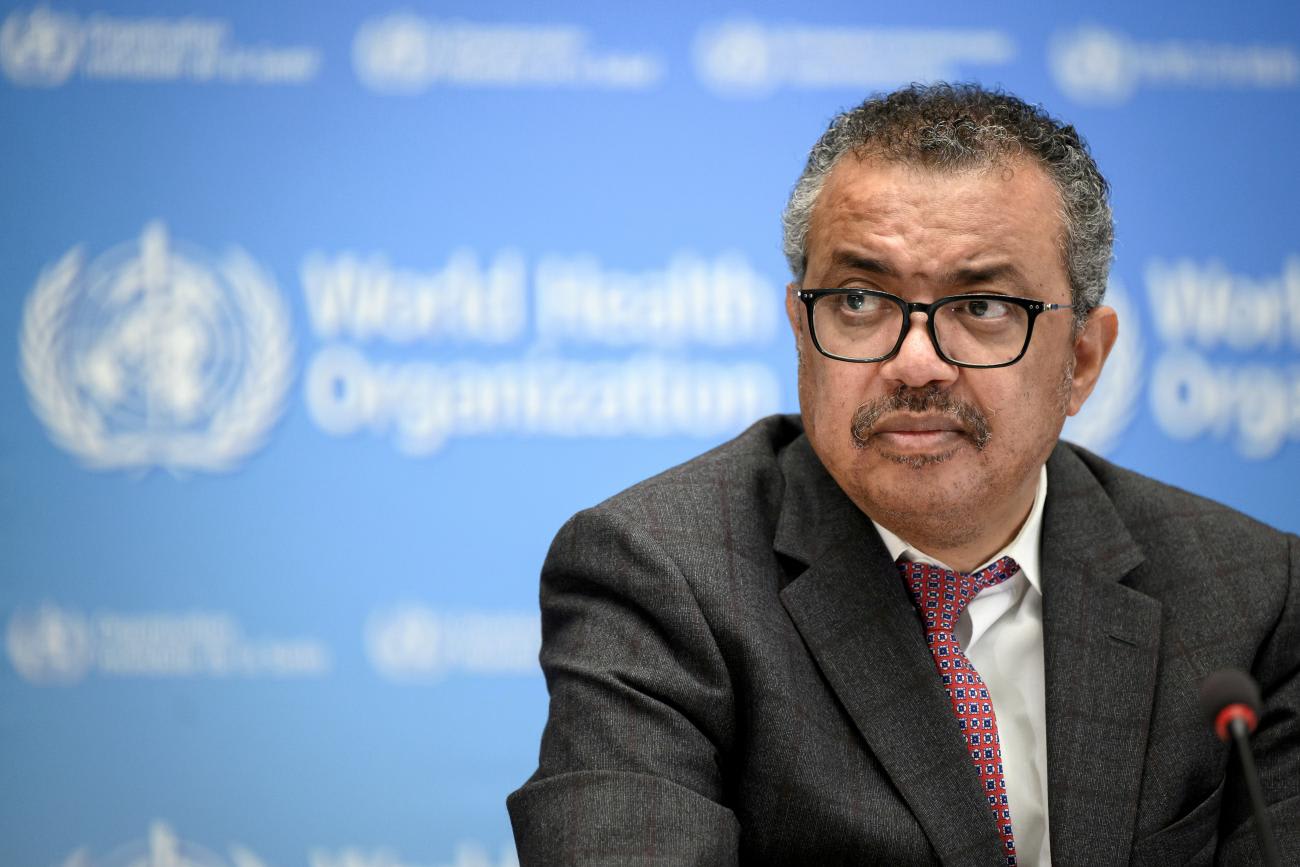
Many treaty proponents favor a "framework convention" that contains general obligations and establishes a process for adopting more focused treaties—known as protocols—on issues within the framework convention's scope. States have used this framework convention-protocol approach frequently for environmental purposes. The WHO Constitution also functions like a framework convention in permitting adoption of specific treaties, such as the IHR and the WHO Framework Convention on Tobacco Control (FCTC).
The framework convention-protocol strategy works best when applied to a specific problem for which proven policy or technological solutions exist, are embraced by powerful countries, and facilitate equitable outcomes. This strategy scored its most well-known success in combatting destruction of the ozone layer. With ozone depletion threatening health in the northern hemisphere, high-income countries backed action and had incentives to transfer resources to low-income countries to mitigate the "free rider" and noncompliance problems that threatened cooperation on ozone depletion. The chemical industry developed affordable alternatives, which reduced the political and economic costs of substitution.
Pandemic preparation and response require painful political and economic decisions
The FCTC also exhibits particular features that explain its success. It addresses a well-defined problem through policies honed over decades of tobacco control efforts. Despite tobacco-industry opposition, the FCTC catalyzed implementation of tobacco-control policies in low- and middle-income countries through assistance from the WHO, high-income states, and non-governmental organizations. The FCTC did not face a free rider problem, and noncompliance by individual countries posed no systemic threat.
The framework convention-protocol strategy has not been as effective on expansive, transnational problems where policy solutions are politically costly, economically painful, and for which technological solutions are limited. These features make the free rider and noncompliance problems harder to mitigate and equitable outcomes more difficult to achieve. Framework conventions and protocols failed to prevent decades of biodiversity loss and global warming or produce strategies against the health threats and inequities that such environmental degradation generates.
The nature, number, and diversity of problems exposed, exacerbated, and created by COVID-19 reflect a threat more akin to biodiversity and climate change than ozone depletion or tobacco consumption. COVID-19 has hammered home that pandemics threaten national security, economic prosperity, and social cohesion. Pandemic preparation and response require painful political and economic decisions that technological innovation does not simplify. In this context, domestic political controversies, misbehavior by even a few countries, and inequities can have disastrous consequences.
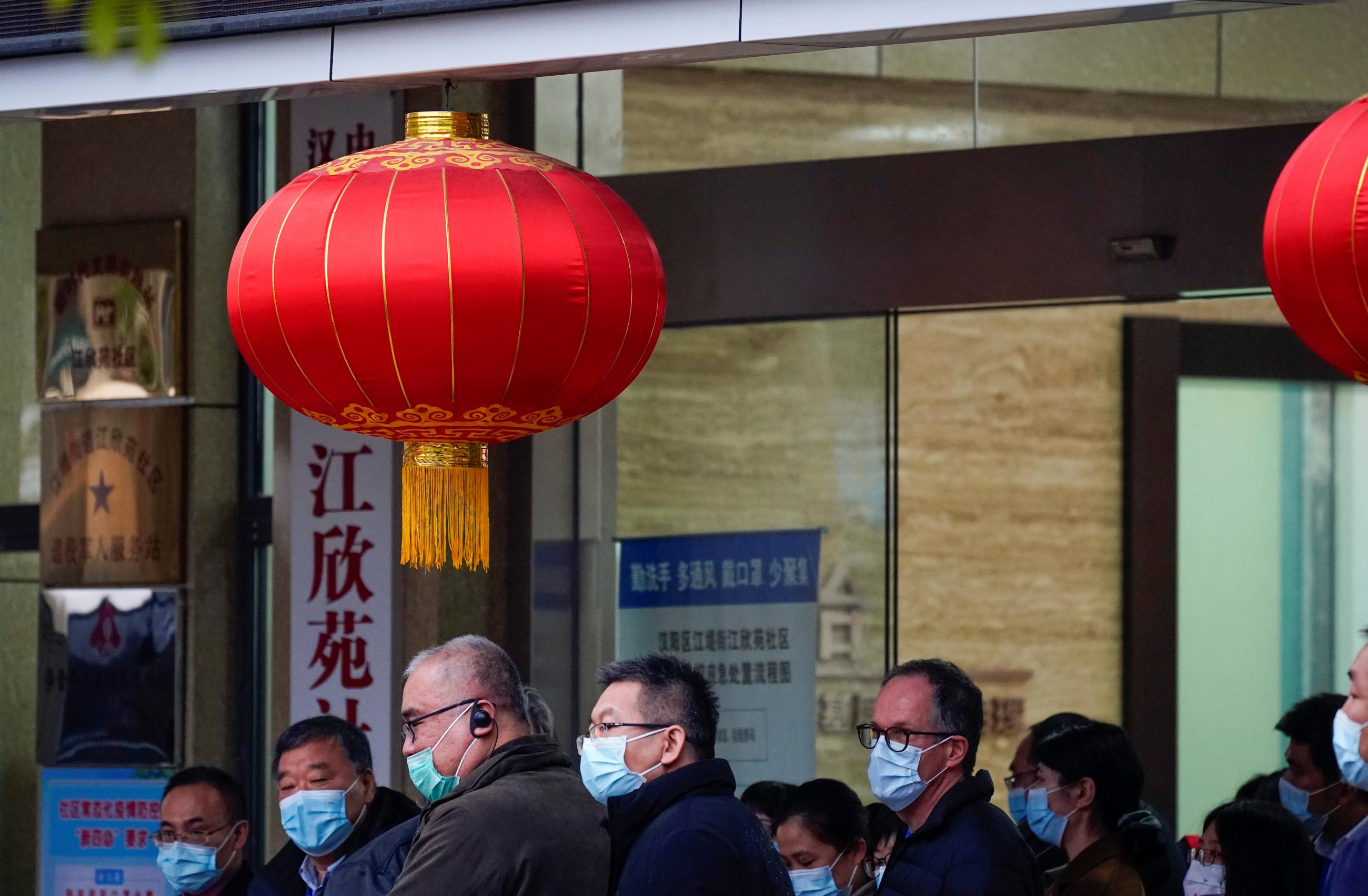
The attention that the potential relationship between a pandemic treaty and the IHR has drawn requires a clear-eyed assessment of the IHR's application during COVID-19. Analyses of the pandemic have produced incompatible claims that the IHR is deeply flawed, requires only limited revisions, and simply needs better implementation by states.
As one example, the Independent Panel for Pandemic Preparedness and Response argued that COVID-19 shows that the IHR does not support a precautionary approach to pandemics. But what happened during COVID-19 does not support this critique. In late December 2019 and early January 2020, the WHO exercised its authority under the IHR to use information from a non-governmental source about a possible outbreak in China, obtain China's verification of it, and start sharing information with WHO members when they had time to prepare for a serious disease event. The IHR also do not require WHO members to follow temporary recommendations that the WHO director-general issues after declaring a public health emergency of international concern (PHEIC). Many states imposed early travel measures despite Director-General Tedros' recommendation against such restrictions, decisions which proved more precautionary against COVID-19 than WHO's advice—an outcome the IHR permitted.
How COVID-19 unfolded also undermines the proposition that the IHR just needs targeted revisions, such as giving the WHO director-general authority to issue alerts below a PHEIC declaration. In defending its actions in January 2020, the WHO stressed that it put countries on notice about a disease event in China weeks before WHO Director-General Tedros declared an emergency—evidence that the WHO has authority to alert countries about potentially serious disease events before a PHEIC declaration. However, Director-General Tedros undercut those early warning efforts by praising China when WHO staff suspected that it was not being transparent about human-to-human transmission. Nothing in the IHR required Director-General Tedros to praise China in this way.
The COVID-19 debacle has created demand for collective action under malignant political conditions
The pandemic treaty proposal has also generated support for using the treaty to empower independent investigations of outbreaks, establish strong enforcement mechanisms, and require the transfer of financial and technological resources to advance equity. States have rarely included such investigation powers, enforcement provisions, and equity obligations in treaties. The WHO Constitution, IHR, FCTC, and framework conventions on other issues do not include them. Why states would embrace these kinds of provisions in a pandemic treaty after COVID-19 is not clear.
The collapse of cooperation during COVID-19 shattered the idea that transnational disease threats create a harmony of interests among states. For high-income countries, the pandemic underscores the imperative to preserve sovereignty and protect national power, rather than accepting limits on sovereign prerogatives and obligations to transfer scarce resources to other countries. Geopolitical and ideological competition among the major states, as well as nationalism and populism within countries, reinforce these incentives. For low-income states, the COVID-19 tragedy teaches age-old lessons about the collateral damage caused by great-power machinations, the hypocrisy of high-income countries on equity, and the never-ending neglect of the health problems that low-income nations disproportionately experience.
A "Pandemic Concert" Strategy
The COVID-19 debacle has created demand for collective action under malignant political conditions. This context requires an approach not centered on one treaty regime. What is needed is a dynamic concert of states, international organizations, and non-governmental actors that creates and facilitates global health projects and draws them together in a web of reinforcing and resilient strands.
The revolution in global health witnessed in the first decade of this century owed much to multi-stakeholder collaborations in which governments, intergovernmental institutions, and non-state actors made and sustained commitments without creating treaties. The Global Fund to Fight AIDS, Malaria, and Tuberculosis provides but one example. This approach also defined the Glasgow climate summit, with coalitions of countries, companies, and civil society populating climate governance with pledges and projects more ambitious and promising than what the treaty mechanisms produced. Actions and initiatives have been proliferating in response to COVID-19, and harnessing this ferment provides the lifeline for reconstituting global health governance in a more dangerous world.
This strategy offers the flexibility that global health governance needs given all the problems that COVID-19 has revealed. It can create political spaces for working through and around geopolitical and ideological competition, as well as nationalist and populist constraints. A pandemic concert can produce advantages for democracies by providing ways to compete more effectively in international politics, deliver stronger domestic health capabilities, and atone for the failure of democratic countries on global equity during COVID-19.
The WHA special session can facilitate a pandemic concert by establishing a diplomatic process aimed not at negotiating a treaty, but at accelerating and connecting the global health endeavors multiplying because of COVID-19.
